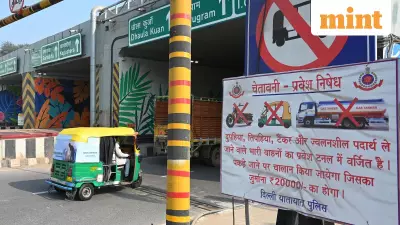
Unexpected Mandate Stuns Political Observers
The Bihar assembly elections delivered a stunning verdict on Friday, with the BJP-led National Democratic Alliance securing a wipeout victory that defied most exit poll predictions. While surveys had indicated a slight advantage for the NDA, the complete collapse of the opposition RJD-Congress alliance surprised political analysts and voters alike.
Pune, home to a significant population of Bihari migrants, witnessed varied reactions to this decisive political outcome. The Indian Express conducted interviews with several members of this community to understand their perspectives on the game-changing mandate.
Mixed Reactions from Pune's Bihari Community
Sudhir Shrivastav, a Pune-based journalist who now works as a financial consultant, expressed his astonishment at the scale of the victory. "The result is unexpected," he stated. "While it was obvious during the election that NDA would form the government, this much of a margin was not anticipated. This is completely one-sided."
Shrivastav identified several factors that potentially influenced the election outcome. "One crucial factor was the Rs 10,000 transfer to women just before the model code of conduct was announced," he explained. "For a woman in an interior village who might not have even seen 1000 rupees at once, receiving Rs 10,000 in her account must feel like a dream."
He also criticized the BJP's campaign strategy, noting that "instead of highlighting their own achievements over the past 20 years, they focused on Lalu Yadav's era from two decades ago." Despite his reservations, Shrivastav extended congratulations to the winning alliance while urging them to prioritize employment generation over freebies. "Pay three times the wages but make people work instead of giving things for free," he recommended.
Relief and Development Expectations
Steel-industry professional Rajiv Kumar admitted he had anticipated a much closer contest. "Mujhe lag raha tha ki kaante ka takkar hoga (I thought it would be a close fight)," he shared. "After 20 years of Nitish Kumar's government, there's bound to be anti-incumbency. But whatever has happened is good. Jungle raaj won't come back."
The term "jungle raaj" refers to the period of Lalu Prasad Yadav's government in Bihar, which critics associate with poor law and order conditions.
Kumar provided a realistic assessment of Bihar's development trajectory, noting that "It's not like Bihar will become Maharashtra so quickly. The transformation is happening gradually." When comparing his visits to his native village with life in Pune, he observed significant differences in infrastructure and crowding patterns.
Migration emerged as a key concern for Kumar, who highlighted the exploitation faced by workers moving to cities like Pune. "Even if people get some small jobs they won't come here. For people who get more salary or good jobs it's a different thing. But someone coming here for Rs 10,000 to 15,000 – in my view, this is exploitation," he emphasized.
Positive Outlook on Governance
Shweta Singh, a visiting law faculty at various law colleges in Pune, found the results aligned with her expectations. "It was an expected result that BJP and JD(U) would win," she stated. "Most of us who stayed in Bihar for quite some time, looking at where Bihar has come compared to the past, recognize that Nitish Kumar has done a good job."
She recalled safety concerns during her childhood, "especially for people of the business class," and acknowledged significant urban development in cities like Patna. Singh also noted the reduction in criminal influence in politics compared to earlier eras.
Expressing optimism about the NDA's return to power, she said, "BJP has also done a pretty good job in other states where it is in government. So I hope their coming to power will bring more changes to Bihar."
The overwhelming mandate for the NDA in Bihar has sparked diverse reactions among Pune's Bihari migrant community, reflecting both surprise at the margin of victory and cautious optimism about future development priorities in their home state.





